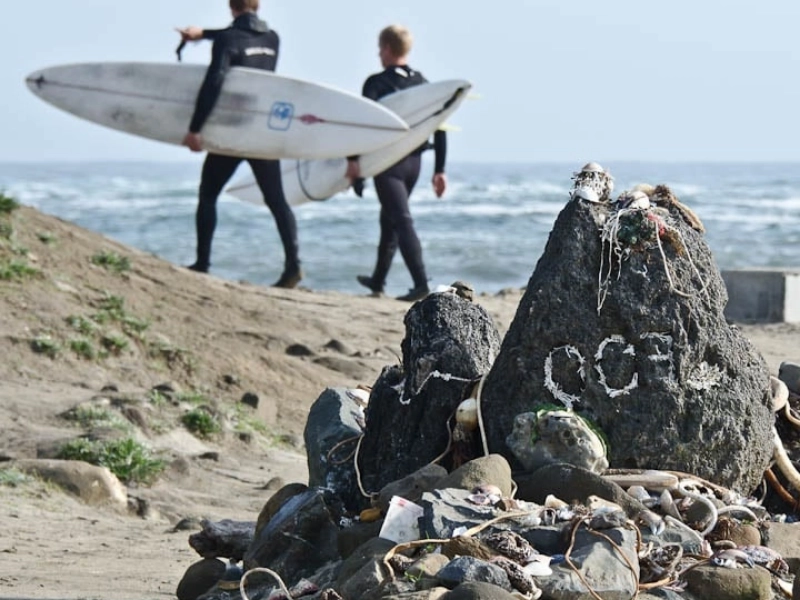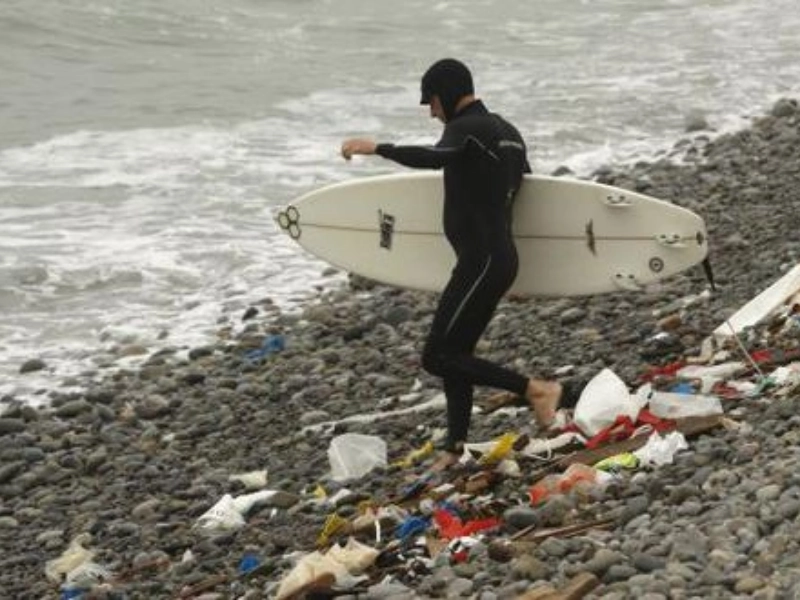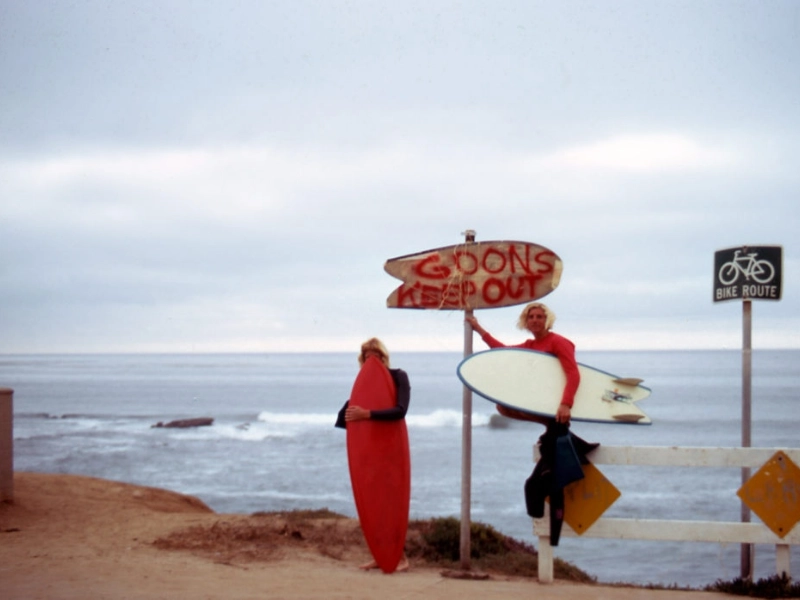Surf SpotEtiquette: Respecting Locals And The Environment
Locals who live near their home have a strong connection to it and are quite knowledgeable about the conditions and unspoken guidelines. In order to prevent chaos on packed waves, it is crucial to comprehend and show respect for their culture. In tight line-ups, it's important to communicate with other surfers; let them know if you're heading left or right. A serious infraction of surfing etiquette is dropping in on another surfer. For the surfer who is in priority, this could pose a risk and potentially ruin the ride.
Observe and take advice from locals.

Honor places of worship or sacredness.
 One of the best ways to understand a place better and learn about the local culture is to visit sacred or religious sites. Respecting the website and adhering to any rules or standards is crucial, though.
It is considered impolite for a surfer to drop in and interfere with another surfer's ride, for instance, if the other surfer already holds the inside position and is paddling for a wave. This behavior may be disrespectful to other surfers and may result in conflicts.
Furthermore, it's a beneficial idea to confirm that leaving offerings at a place of worship is permitted. Some sites may forbid this for preservation or security reasons. Additionally, when visiting natural locations, don't forget to bring your trash with you or utilize receptacles that are properly designated.
One of the best ways to understand a place better and learn about the local culture is to visit sacred or religious sites. Respecting the website and adhering to any rules or standards is crucial, though.
It is considered impolite for a surfer to drop in and interfere with another surfer's ride, for instance, if the other surfer already holds the inside position and is paddling for a wave. This behavior may be disrespectful to other surfers and may result in conflicts.
Furthermore, it's a beneficial idea to confirm that leaving offerings at a place of worship is permitted. Some sites may forbid this for preservation or security reasons. Additionally, when visiting natural locations, don't forget to bring your trash with you or utilize receptacles that are properly designated.
Keep your board nearby.
 A healthy surfing environment depends on proper surfing etiquette. Everyone should understand who has priority and avoid drop-ins if they want to surf together.
To avoid collisions with other surfers, stay on the outside or inside shoulder and paddle wide of them when they are already on the wave. It can be frustrating to drop in on other surfers, as it is regarded as stealing the wave from them. However, it's usually not a deliberate action. Simply put, they missed you.
If you're just starting out, stay in surfing areas appropriate for your skill level. Surfing anywhere outside of your comfort zone can be risky for both you and other surfers. To avoid making this mistake, know your limits and familiarize yourself with the circumstances of the ocean before you go.
A healthy surfing environment depends on proper surfing etiquette. Everyone should understand who has priority and avoid drop-ins if they want to surf together.
To avoid collisions with other surfers, stay on the outside or inside shoulder and paddle wide of them when they are already on the wave. It can be frustrating to drop in on other surfers, as it is regarded as stealing the wave from them. However, it's usually not a deliberate action. Simply put, they missed you.
If you're just starting out, stay in surfing areas appropriate for your skill level. Surfing anywhere outside of your comfort zone can be risky for both you and other surfers. To avoid making this mistake, know your limits and familiarize yourself with the circumstances of the ocean before you go.
Avoid Trespassing
 On land, surfers might come across as laid-back individuals, but in the water, things can get really heated. Make sure you follow the rules of a particular place, or risk losing your surfing career if you hurt someone or upset a local surfer.
Some beaches, for example, mandate that you wear a wetsuit for safety reasons; others do not. It's crucial to remember not to trash, vandalize, or leave anything other than footprints on the beach.
Take the time to become familiar with and abide by the rules of a surf spot, as they may differ. For instance, it is deemed a serious infraction of surfing etiquette and sometimes dangerous to drop in on another surfer. If you want to paddle for a wave that someone else is already riding, it is best to yell out so they are aware of your approach.
On land, surfers might come across as laid-back individuals, but in the water, things can get really heated. Make sure you follow the rules of a particular place, or risk losing your surfing career if you hurt someone or upset a local surfer.
Some beaches, for example, mandate that you wear a wetsuit for safety reasons; others do not. It's crucial to remember not to trash, vandalize, or leave anything other than footprints on the beach.
Take the time to become familiar with and abide by the rules of a surf spot, as they may differ. For instance, it is deemed a serious infraction of surfing etiquette and sometimes dangerous to drop in on another surfer. If you want to paddle for a wave that someone else is already riding, it is best to yell out so they are aware of your approach.
Observe the environment.
 To surf, you must respect the surrounding environment. This entails keeping the ecosystem and fauna intact, not destroying dunes, and not leaving rubbish behind. It means avoiding unsafe surfable areas to paddle or trespass.
Speaking with other surfers in the lineup is crucial, particularly when the waves are packed. Accidents can be prevented by quickly stating, "I'm going left" or "I'm going right." It's also crucial to remember that "dropping in" on another surfer is impolite and risky for both of you.
Lastly, pick a surf spot based on your ability level at all times. In addition to putting yourself at risk, surfing into waves that are too big for you wastes water and may even endanger other surfers.
To surf, you must respect the surrounding environment. This entails keeping the ecosystem and fauna intact, not destroying dunes, and not leaving rubbish behind. It means avoiding unsafe surfable areas to paddle or trespass.
Speaking with other surfers in the lineup is crucial, particularly when the waves are packed. Accidents can be prevented by quickly stating, "I'm going left" or "I'm going right." It's also crucial to remember that "dropping in" on another surfer is impolite and risky for both of you.
Lastly, pick a surf spot based on your ability level at all times. In addition to putting yourself at risk, surfing into waves that are too big for you wastes water and may even endanger other surfers.









